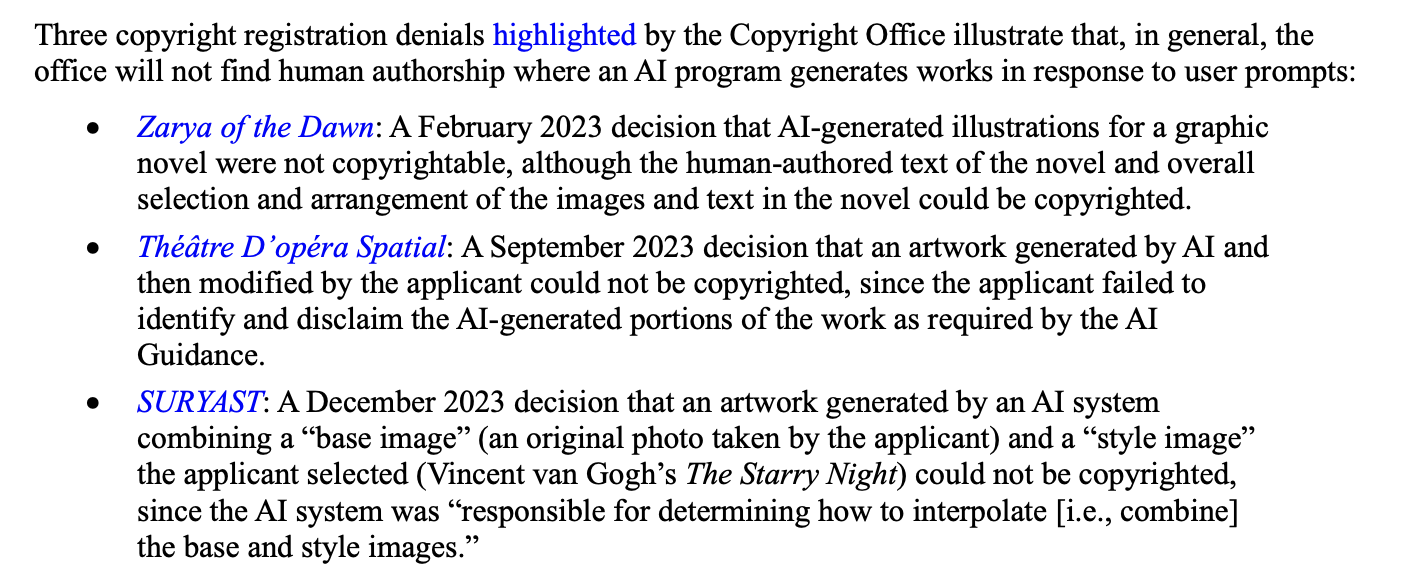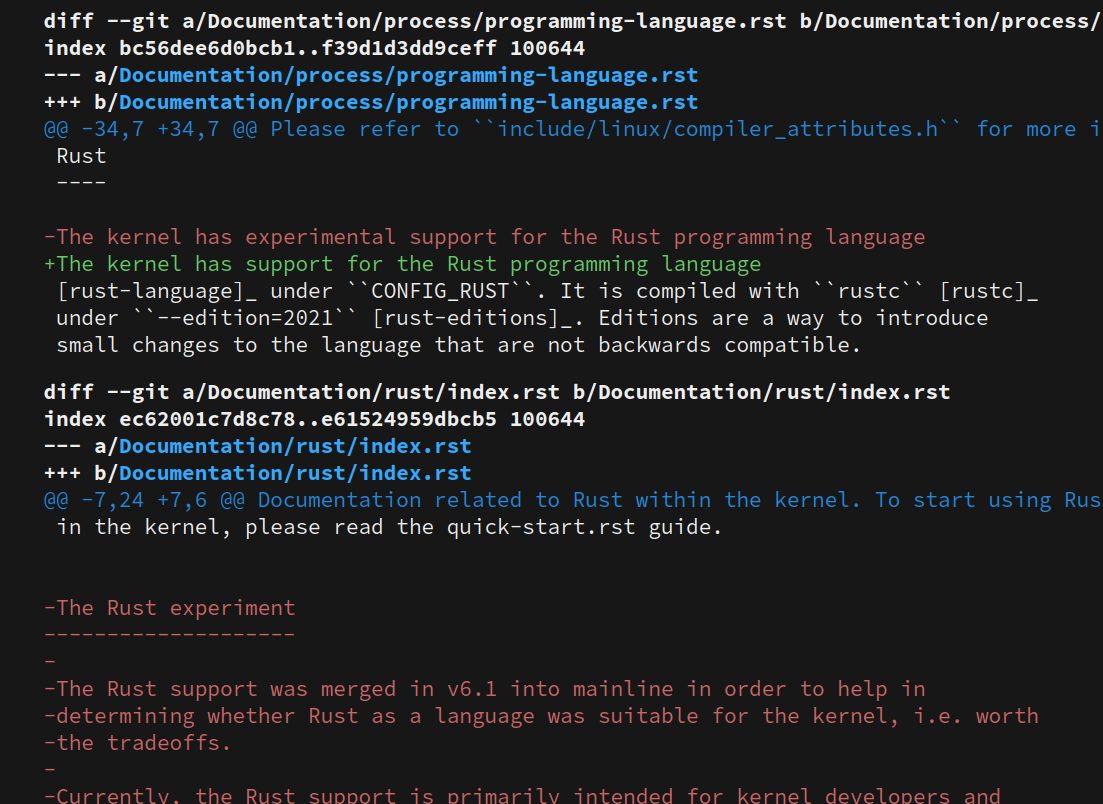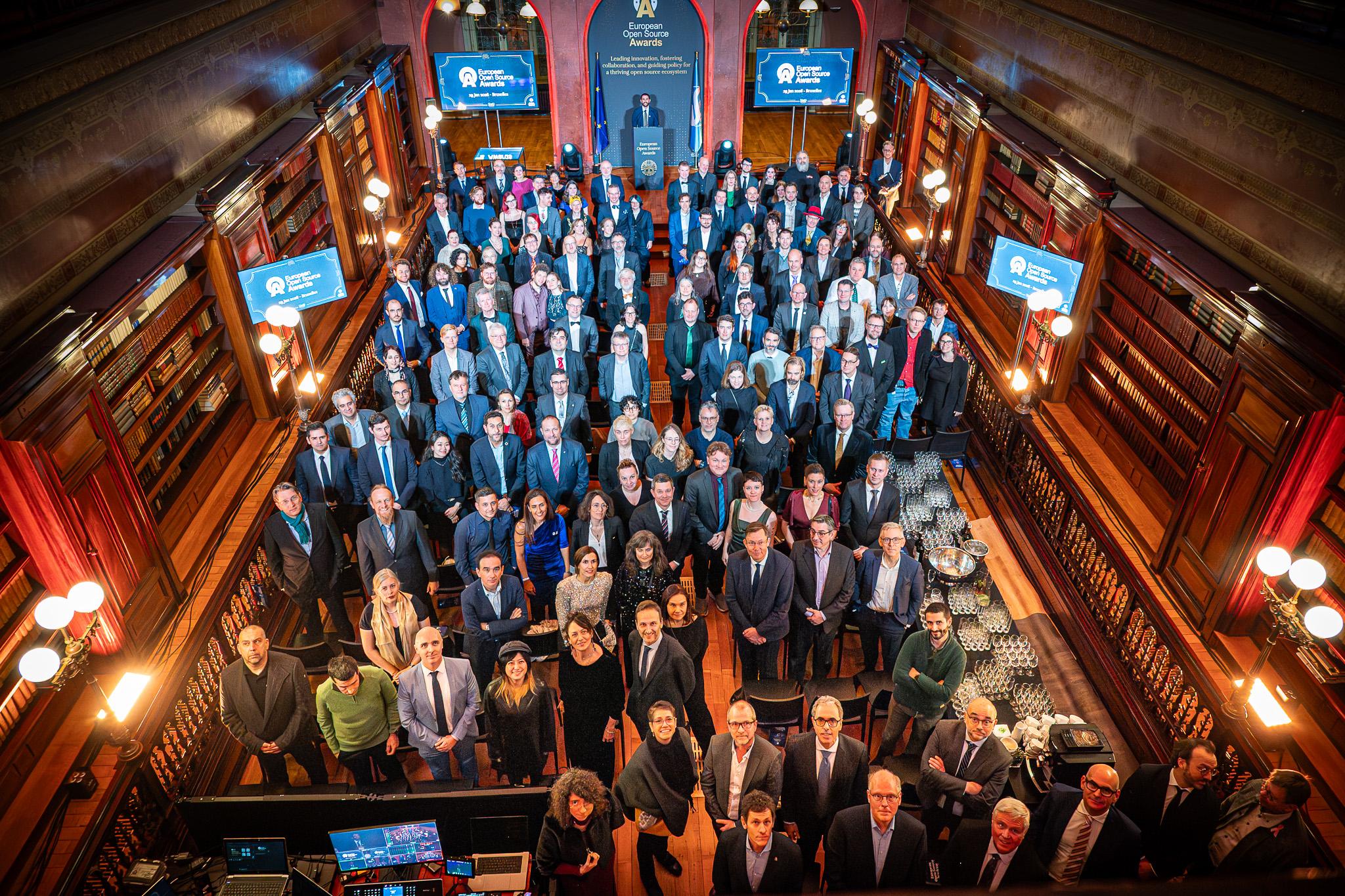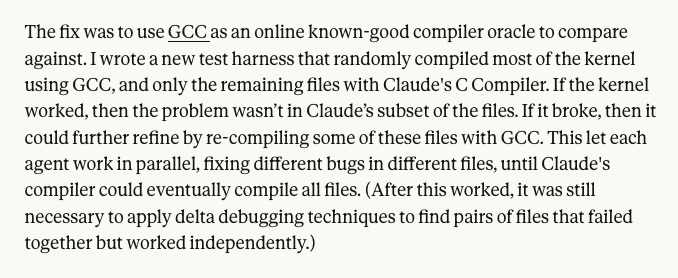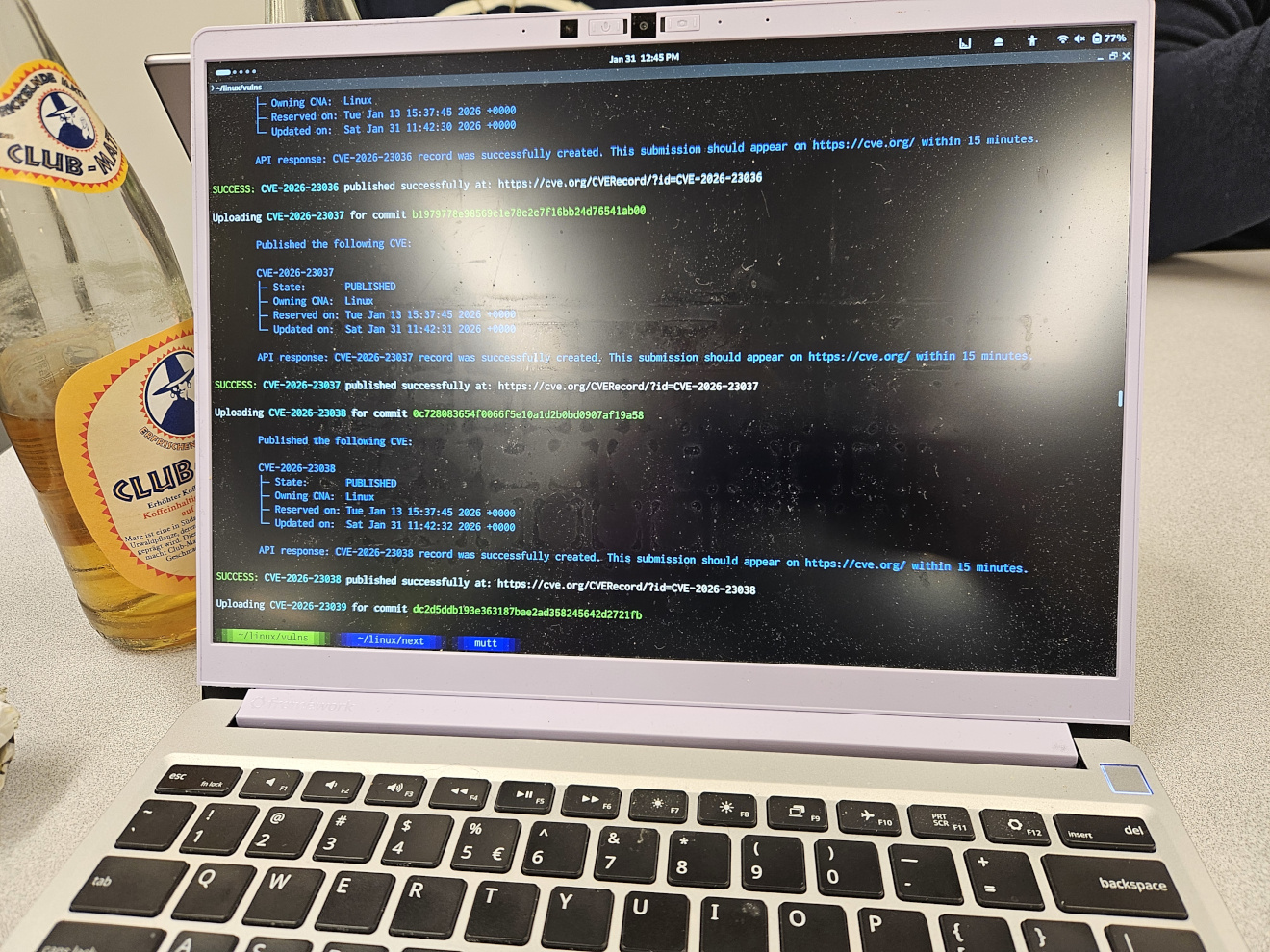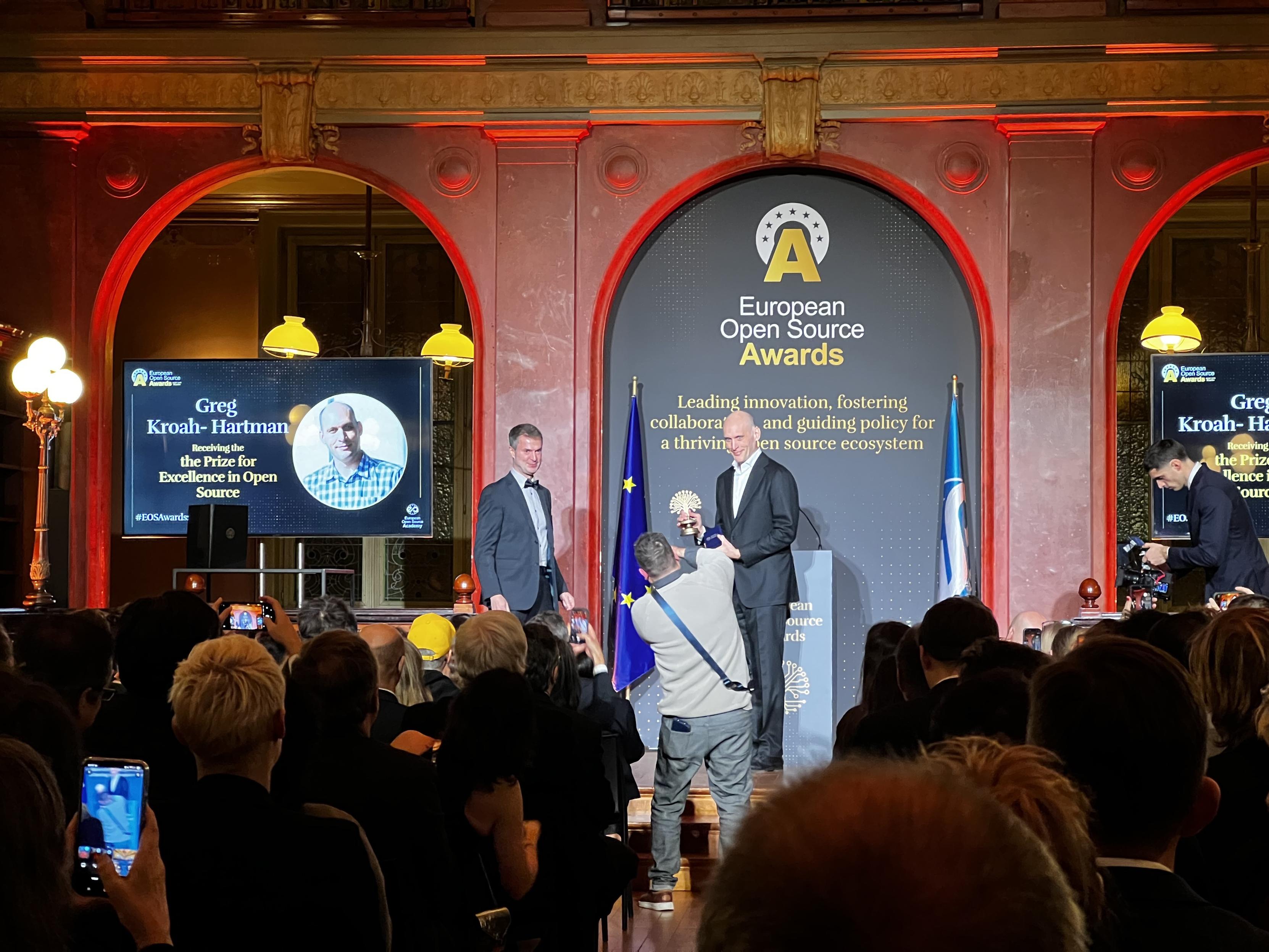Posts
375Following
96Followers
4357Jamie Gaskins
jamie@zomglol.wtfIf you use AI-generated code, you currently cannot claim copyright on it in the US. If you fail to disclose/disclaim exactly which parts were not written by a human, you forfeit your copyright claim on *the entire codebase*.
This means copyright notices and even licenses folks are putting on their vibe-coded GitHub repos are unenforceable. The AI-generated code, and possibly the whole project, becomes public domain.
Source: https://www.congress.gov/crs_external_products/LSB/PDF/LSB10922/LSB10922.8.pdf
Thorsten Leemhuis (acct. 1/4)
kernellogger@hachyderm.ioThe #Rust support in the #Linux #kernel is now officially a first class citizen and not considered experimental any more:
https://git.kernel.org/torvalds/c/9fa7153c31a3e5fe578b83d23bc9f185fde115da; for more details, see also: https://lwn.net/Articles/1050174/
This is one of the highlights from the main #RustLang for #LinuxKernel 7.0 that was merged a few hours ago ; for others, see https://git.kernel.org/torvalds/c/a9aabb3b839aba094ed80861054993785c61462c
European Open Source Academy
europeanOSacademy@fosstodon.orgThe 2nd Annual #EuropeanOpenSourceAwards have come to a close, but you can still revisit the best moments of the Awards Ceremony.
👇Watch the recording available here :
https://awards.europeanopensource.academy/awards/2026-recording-event
daniel:// stenberg://
bagder@mastodon.socialThe European Open Source Awards ceremony from January 29th, in one loooong recording with yours truly showing up several times.
Most blabbing at 1h24 and onward when @gregkh was up.
bert hubert 🇺🇦🇪🇺🇺🇦
bert_hubert@eupolicy.socialI am losing it at how many of my peers have forgotten what software engineering is. It is not typing in lines of code.
Kernel Recipes
KernelRecipes@fosstodon.orgSince we’re not superstitious, the 13th edition of KR will take place September 21–23, 2026 (black cats strictly forbidden during this edition — even on a leash… 😄). We hope to see loads of you there!
And because we want to keep offering the best possible conditions for three days of good vibes and community for everyone, feel free to support this edition by becoming a sponsor. All the info is here!
David Gerard
davidgerard@circumstances.runreading vibecoders talk about how great vibecoding is for engineering real things is like reading bitcoiners talk about how they think money works
mhoye
mhoye@cosocial.caBeing on Team Words Mean Things is difficult these days, particularly when multibillion-dollar companies put out breathless press releases saying "By using our massive language model, whose training data includes every version of GCC ever released, and having it autocorrect its own output by testing it against GCC, we managed to make a C compiler that mostly works for only $20,000 in a week and gosh I have so many feelings."
I mean, what the fuck are we even doing here.
☭. evie
vie@hachyderm.ioI think it's interesting how software engineers are (among?) the most eager working class group to replace themselves with LLMs.
It's interesting because LLMs do a worse job than us, we lose ability/skill to do our job the more we use it, lose our jobs, produce worse software, are less satisfied with our work, etc.
Yet so many of my peers seem to be super excited about and advocate for it, while other working class groups at least detest LLMs if not even consider organising themselves to protect their trade/jobs from LLMs.
Are we becoming the cops (read as: class traitors) of this techno-fascist dystopia?
Greg K-H
gregkhIf I didn't know better, I would think this is an elaborate phishing scam, or they have run out of data to scrape and need more training material.
Gotta admire their brazenness...
Greg K-H
gregkhhttps://openssf.org/blog/2026/01/21/preserving-open-source-sustainability-while-advancing-cybersecurity-compliance/
Yes, FOSS foundations and projects need ways of getting funding, that is very important, but thinking that "attestation is how we will get that money!" might not be such a good idea given the risks involved, and the past experience for those that have attempted it.
bert hubert 🇺🇦🇪🇺🇺🇦
bert_hubert@eupolicy.socialso I like to make plaintext outlines of presentations I do. Today is a banger.
Larry Garfield
Crell@phpc.socialI may regret this at some point, but I felt the need to put down in writing how I feel about this moment in the tech industry.
It is not kind. You may well be insulted by it. If you are... then you really should question yourself.
Utopiah (Fabien Benetou)
utopiah@mastodon.pirateparty.beJosh Bressers
joshbressers@infosec.exchangeEverything you’re hearing about AI is completely true and not at all made up by sycophants
The only thing that is real is your FOMO
Also ducks. Ducks are real
Greg K-H
gregkhWhen the AI coding agent companies are just about to run out of money, down to their last few % raised as none of their customers are actually paying the real cost required to run these services, they pivot and take all of the uploaded code that was willingly sent to them, turn it into thousands of products / services to sell / rent, disconnect the public api endpoints leaving their old customers helpless as they no longer remember how to program "in the raw" and can not understand their own codebases, and compete directly against them putting their own customers all out of business which finally results in a positive income stream and "validation" of the coding agent companies previously over-hyped business valuations.
"But copyright law will prevent this!" you say...
Greg K-H
gregkhRE: https://mastodon.social/@bagder/115980733920028429
Sebastian Raible
sraible@eupolicy.socialThe @europeanOSacademy‘s Excellence in Open Source Award 2026 goes to @gregkh #opensource #OSAwards #eosawards26, presented by @bagder. #linux

